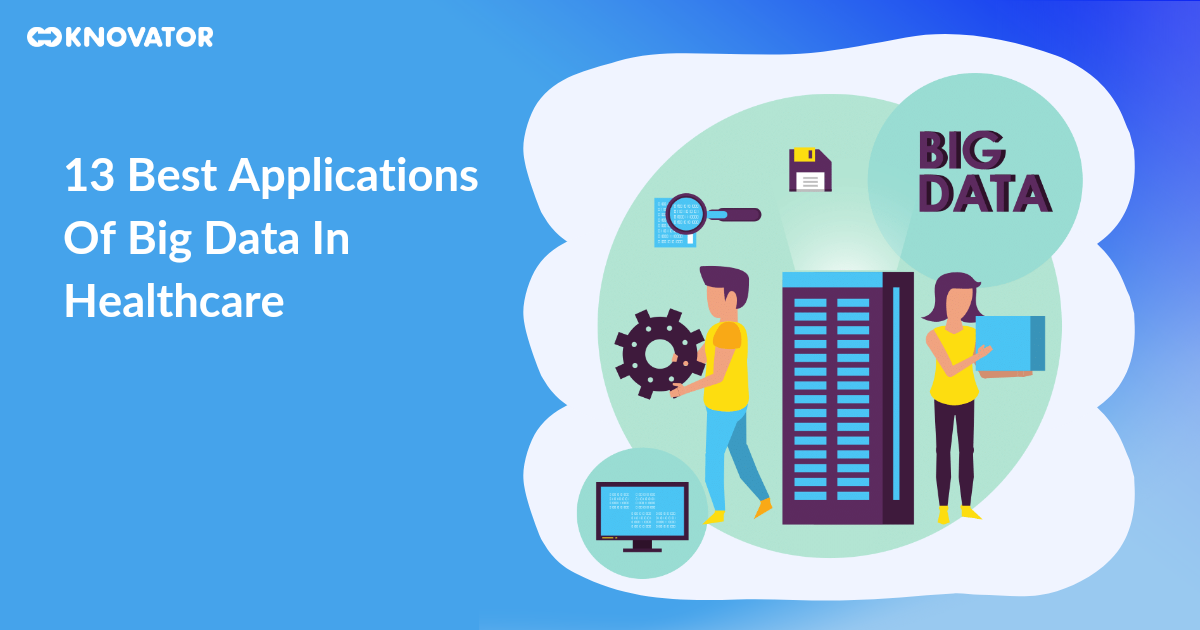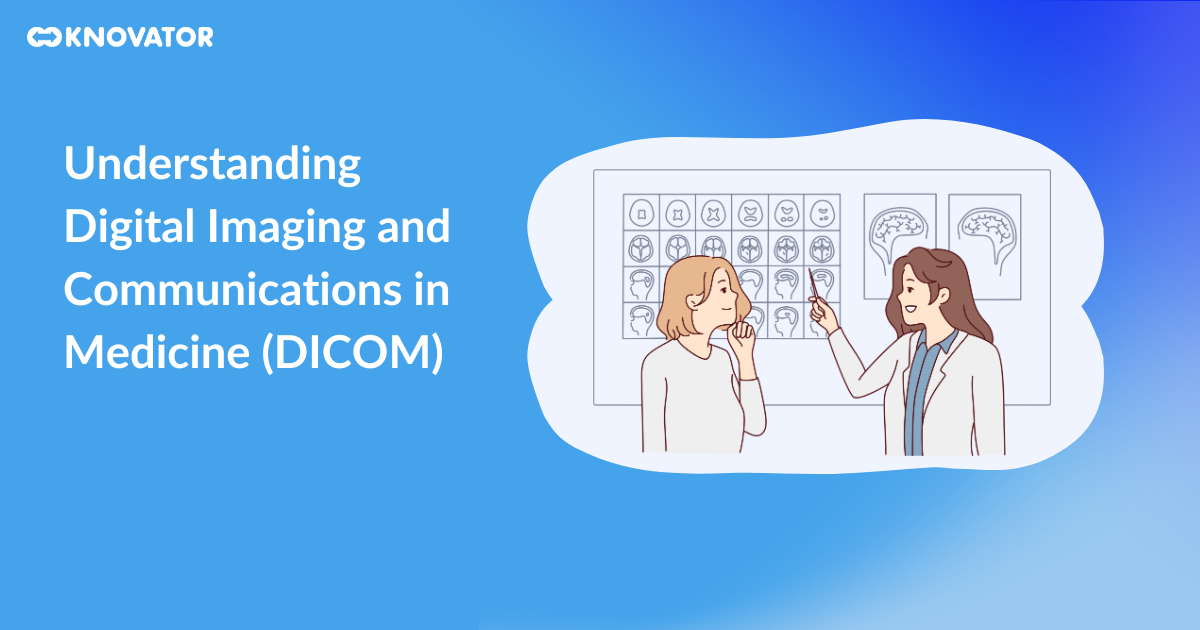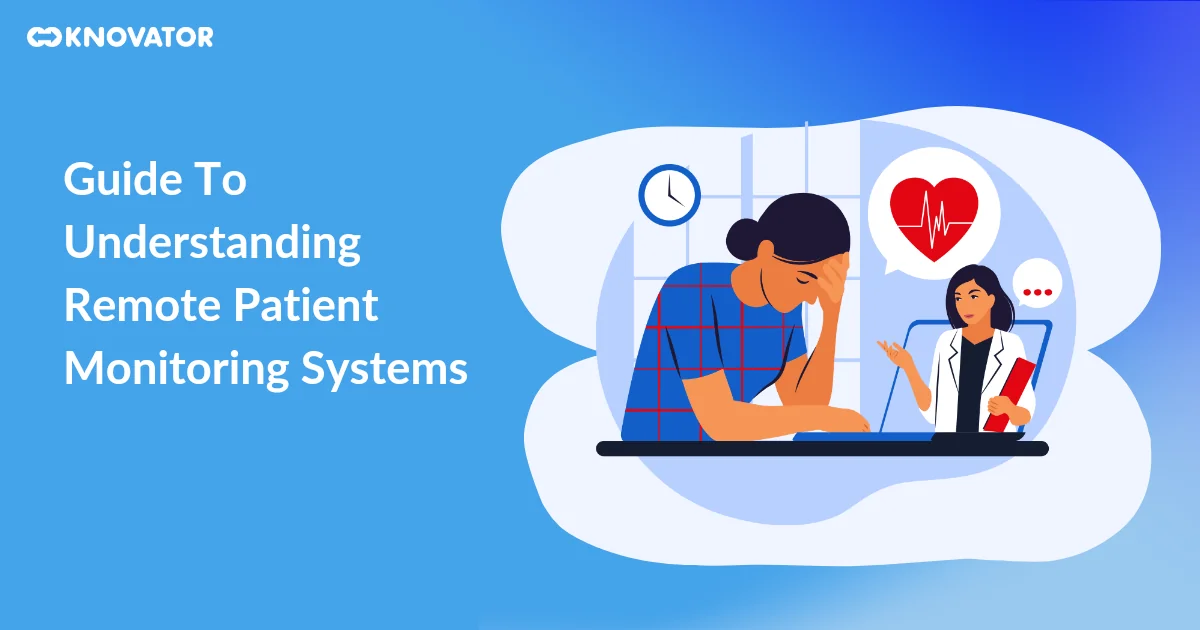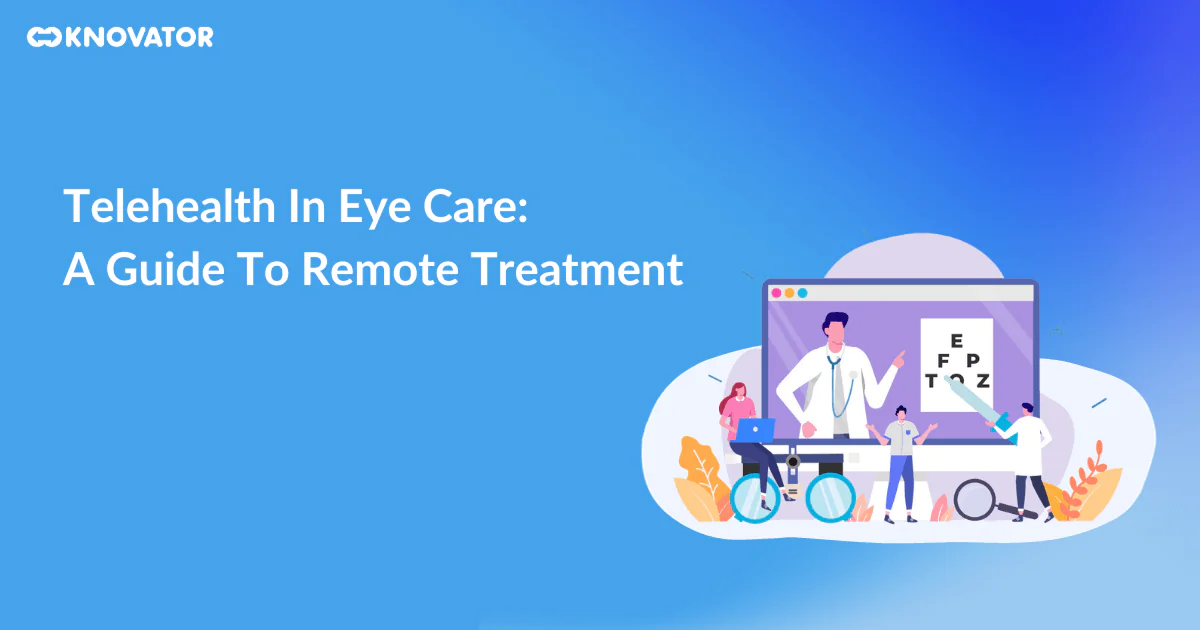Big data is transforming healthcare in several ways. By 2025, big data analytic services in healthcare are expected to be valued at over 13 billion USD.
This is just one facet of the impact of big data on healthcare.
There are several applications of big data that are revolutionizing the healthcare industry.
This blog post will look at 13 of the best big data applications in healthcare. We’ll discuss how big data is used to improve patient care, bring down costs, and make healthcare more efficient.
So whether you are a healthcare professional, a patient, or simply someone interested in the future of healthcare, read on to learn more about how big data is changing healthcare.
What Is Big Data In Healthcare & Why Do We Need It?
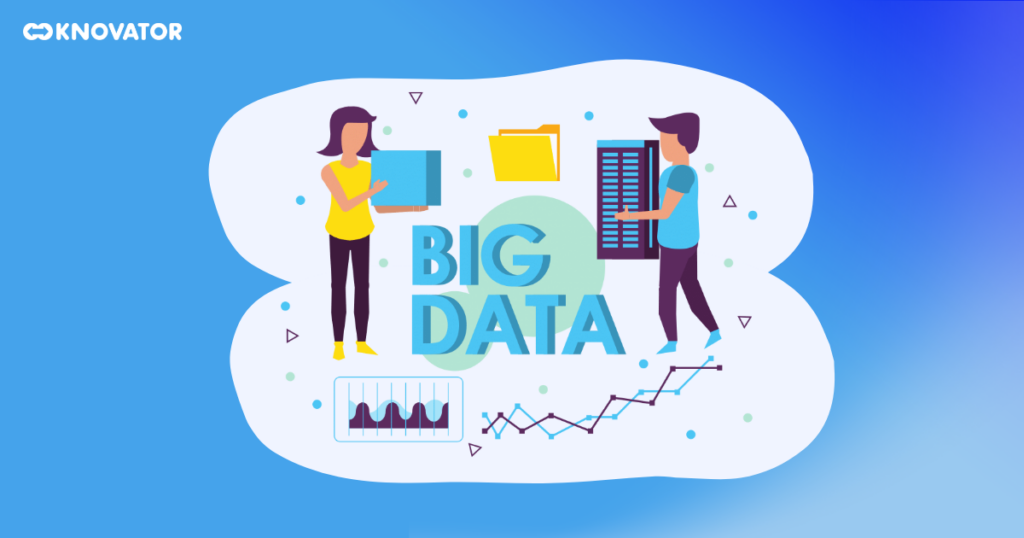 Big data refers to extremely large data sets that require computational analysis to reveal patterns and trends related to human behavior and interactions. These data sets are characterized by their high volume, velocity, and variety.
Big data refers to extremely large data sets that require computational analysis to reveal patterns and trends related to human behavior and interactions. These data sets are characterized by their high volume, velocity, and variety.
The healthcare industry currently generates 30% of the world’s data volume in today’s scenario. By 2025, this figure is expected to reach 36%, a 6% increase over the current level! To put it simply, healthcare is generating data at a quicker pace than most other industries.
The healthcare industry generates data from a variety of sources, including:
- patient data
- medical insurance data
- research data
- innovation and medicine data
- medical institution data
- student data
- business development data
This data can be complex and challenging to manage. Therefore, using big data analytics in healthcare is a game changer in solving this situation.
Big Data Applications In Healthcare
After understanding the basic overview of big data in healthcare, let’s explore how it is used in healthcare.
Here are the top 13 applications of big data in healthcare:
1. Patients predictions for better staffing
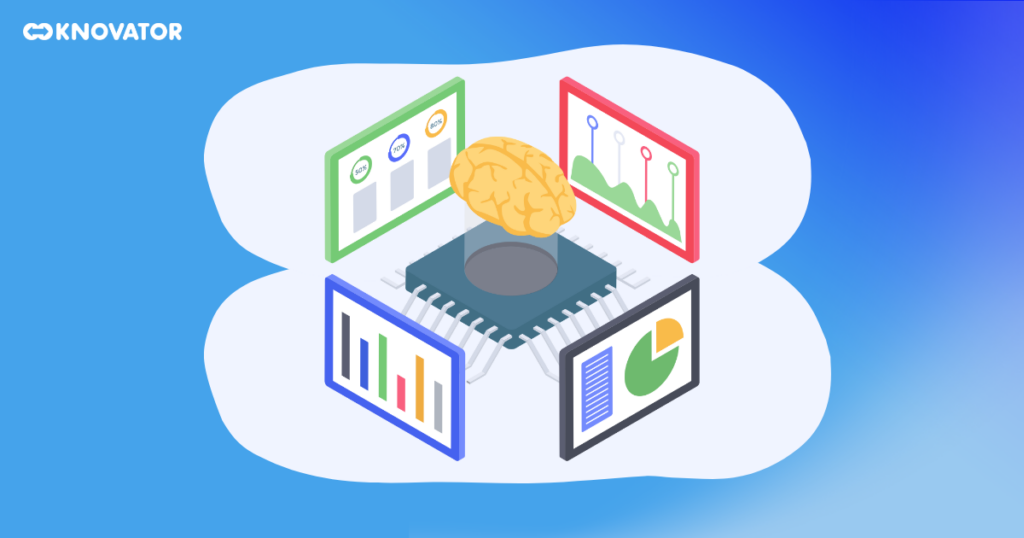 The best use of big data in healthcare is patients predictions for better staffing. Staffing is a critical issue in healthcare institutions that requires a robust and reliable solution.
The best use of big data in healthcare is patients predictions for better staffing. Staffing is a critical issue in healthcare institutions that requires a robust and reliable solution.
Thus, big data can be used to predict patient needs and staffing requirements. This can help hospitals ensure they have the right number of staff on hand to provide the best possible care.
For example, data can predict which patients are likely to need more care or which days of the week are typically busiest. This information can then be used to adjust staffing levels accordingly.
2. Monitoring patient vitals
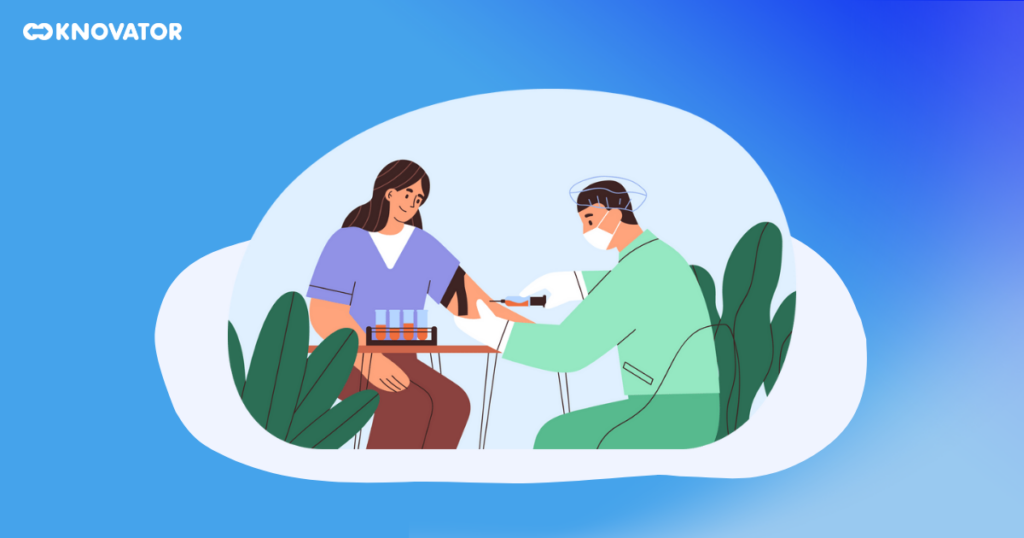 Big data analytics in the healthcare industry help monitor patient vitals in real time. This can help determine and respond to potential problems early, improving outcomes.
Big data analytics in the healthcare industry help monitor patient vitals in real time. This can help determine and respond to potential problems early, improving outcomes.
For instance, big data healthcare analytics can track a patient’s blood pressure, heart rate, and other vitals.
If these vital signs fall outside a normal range, an alert can instantly be sent to the patient’s healthcare provider. This allows the healthcare provider to intervene early and prevent a serious health problem.
3. Maintaining Electronic Health Records (EHRs)
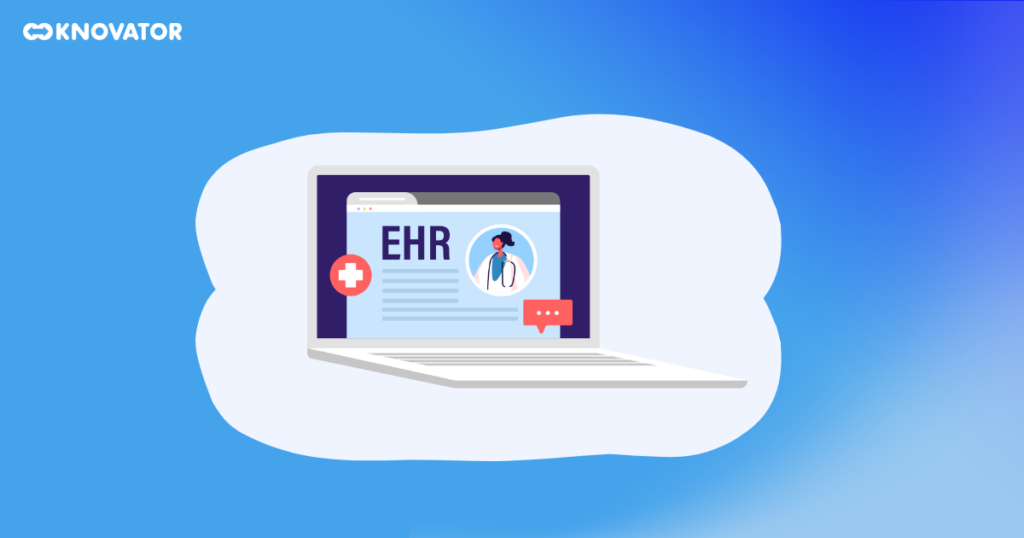 Electronic health records (EHRs) are a valuable source of big data in healthcare. They can track patient health over time, identify trends and patterns, and enhance the quality of care.
Electronic health records (EHRs) are a valuable source of big data in healthcare. They can track patient health over time, identify trends and patterns, and enhance the quality of care.
One of the most important big data use cases in healthcare is maintaining EHRs. However, managing electronic health records is tricky due to the large amount of patient data they produce.
Big data analytics process this data efficiently and identify valuable insights. It can be used to:
- Recognize patients who are at risk for certain diseases.
- Predict which patients are more likely to have adverse reactions to medications.
- Improve the accuracy of diagnoses.
- Reduce the risk of medical errors.
4. Providing Real-Time Alerts
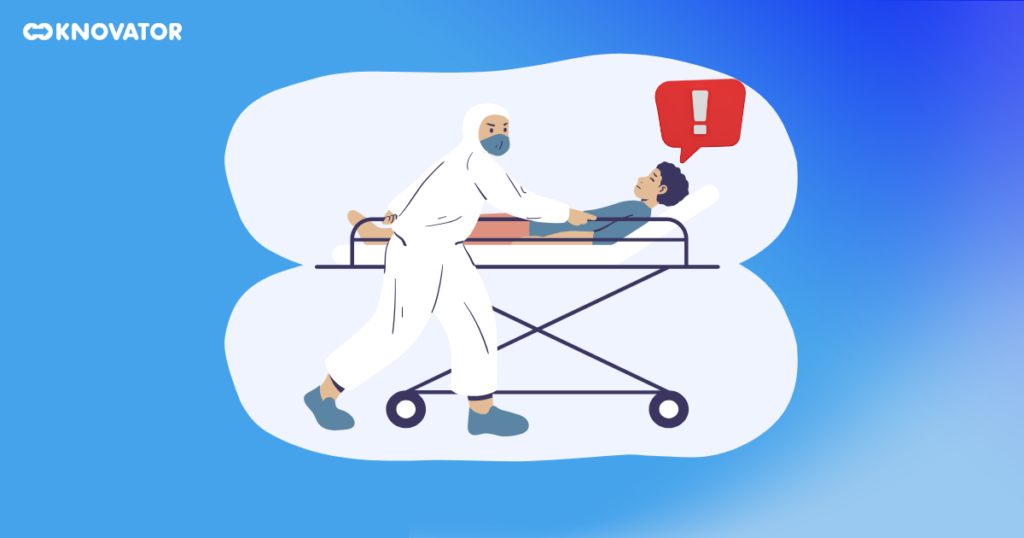 Real-time alerts play a crucial role in the healthcare sector and include a variety of categories, such as:
Real-time alerts play a crucial role in the healthcare sector and include a variety of categories, such as:
- Vital Alerts for Critical Patients
- An increase in Orders, Tests, and Patients
- Cost Management Alerts
- Staff Productivity Alerts
As you have already seen, big data and health analytics provide real-time alerts to patients and healthcare providers. This helps identify and address potential health problems early on, which can lead to better outcomes.
Suppose a patient’s blood pressure suddenly spikes. In that case, a real-time alert can be sent to the patient’s doctor or themselves. This allows the doctor to take action to lower the blood pressure and prevent a serious health event.
5. Working towards cancer cure
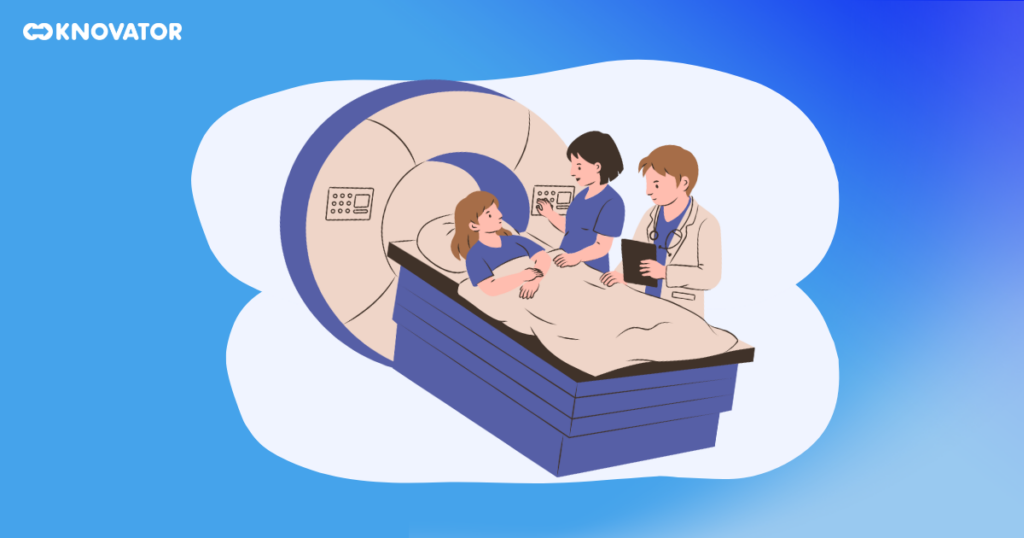 Big data and healthcare are being used to improve cancer care in several ways, including:
Big data and healthcare are being used to improve cancer care in several ways, including:
- Determine patients at high risk of developing cancer.
- Develop tailored treatment plans based on a patient’s individual tumor profile.
- Track the effectiveness of cancer treatments over time.
- Indicate which patients are most likely to react to a particular treatment.
- Develop new cancer drugs and therapies.
By studying large datasets of patient records, researchers can identify new patterns and insights into cancer biology. This information can then be used to develop more effective treatments and improve patient outcomes.
6. Enhancing Patient Engagement
 Big data use cases in healthcare can enhance patient engagement in several ways. For example, it may provide:
Big data use cases in healthcare can enhance patient engagement in several ways. For example, it may provide:
- Personalize patient care by providing patients with information and insights relevant to their needs.
- Create patient-centered communication channels such as online portals and mobile apps that allow patients to interact with their healthcare providers easily.
- Track patient progress and provide feedback to patients so that they can stay on track with their treatment plans.
- Determine patients who are at risk of poor health to take necessary measures.
7. Preventing Opioid Abuse
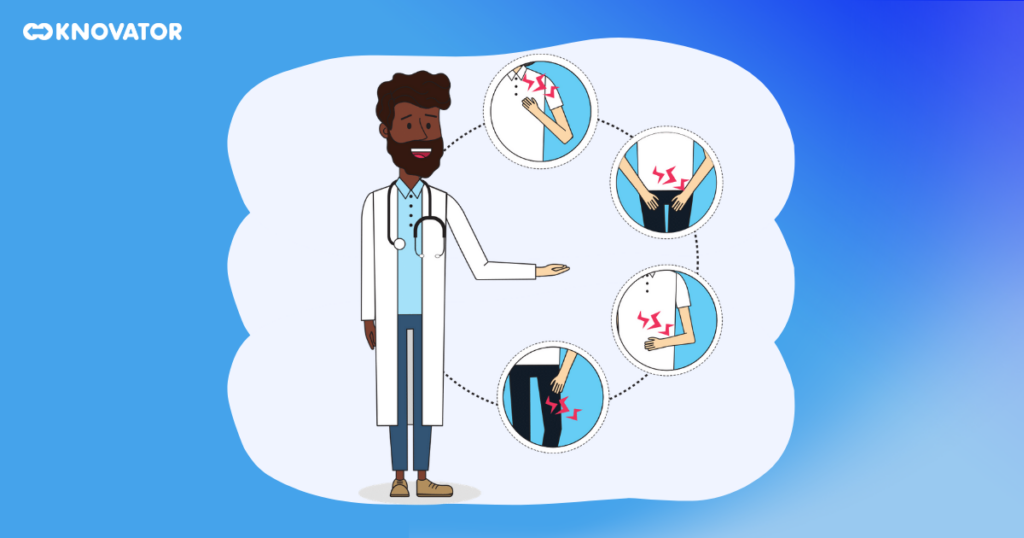 You have already seen that big data has significantly impacted healthcare, and one of the areas where this is evident is in the prevention of opioid abuse.
You have already seen that big data has significantly impacted healthcare, and one of the areas where this is evident is in the prevention of opioid abuse.
With big data analytics, healthcare providers can identify patients more likely to develop an addiction to opioids. This is possible by analyzing a patient’s medical history, prescription records, and other relevant data.
Healthcare providers can reduce the risk of addiction by identifying patients who are at risk and taking proactive measures. This can include prescribing alternative pain management techniques or providing counseling. Therefore, the use of big data in healthcare has the potential to prevent opioid abuse.
8. Using Health Data For Creating Strategies
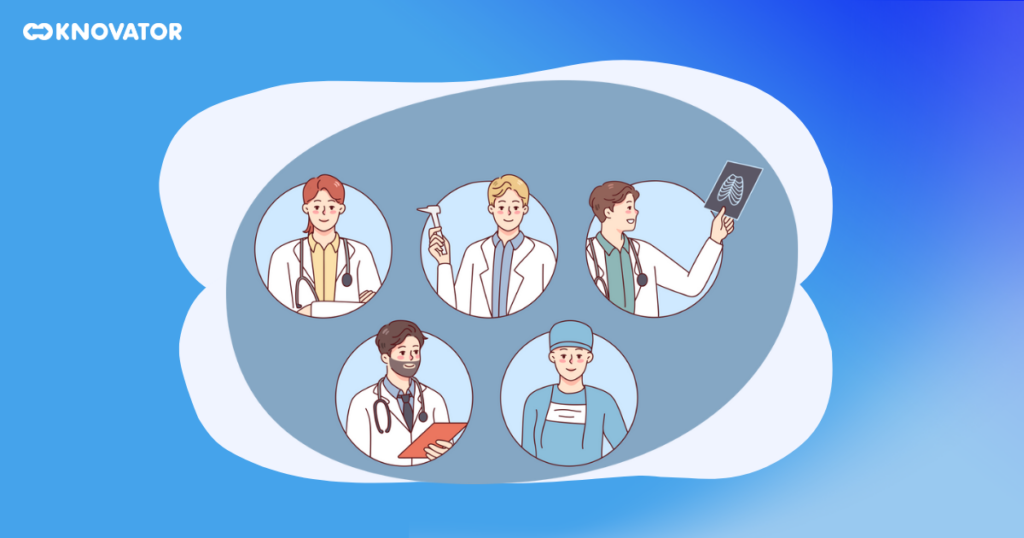 The advantages of big data in healthcare are numerous, and the most significant one is the ability to use health data for creating effective strategies.
The advantages of big data in healthcare are numerous, and the most significant one is the ability to use health data for creating effective strategies.
When healthcare providers have access to large amounts of data, they can analyze it to identify patterns and trends. It allows them to make informed decisions. This is particularly useful when creating strategies for improving patient outcomes.
Use of big data in healthcare can lead to more efficient care and better health.
9. Enabling Predictive Analytics In Healthcare
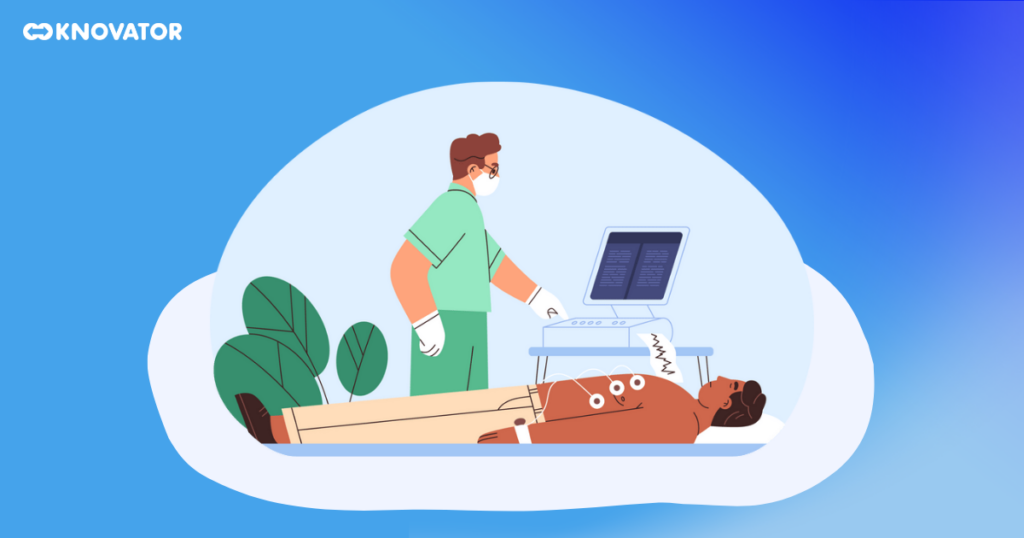 Big data in the healthcare industry enables predictive analytics, which uses data to predict future events. This may improve patient care in several ways, such as:
Big data in the healthcare industry enables predictive analytics, which uses data to predict future events. This may improve patient care in several ways, such as:
- Identifying individuals who are likely to develop chronic conditions
- Predicting disease outbreaks
- Managing hospital performance
- Improving the effectiveness of treatments
Predictive analytics is a powerful tool that improves patient outcomes and minimizes costs in the healthcare industry. As big data in the healthcare industry continues to grow, the potential for predictive analytics to improve healthcare will only increase.
10. Preventing Suicide & Self-Harm
 As mentioned earlier, many people may have medical conditions that increase their risk of self-harm or suicide. Using predictive analysis, medical professionals can identify these patients and offer counseling to reduce the risks.
As mentioned earlier, many people may have medical conditions that increase their risk of self-harm or suicide. Using predictive analysis, medical professionals can identify these patients and offer counseling to reduce the risks.
Big data can identify patterns and indicators of risk. This is possible by linking anonymized data from different sources, such as school attendance, medical records, and social media. This information helps in developing targeted interventions to help people who are at risk.
For example, big data could identify people who have been absent from school frequently or searching for information about suicide online. These people can then receive support services or interventions to help them stay safe.
11. Managing & Tracking Mass Diseases
![]() Big data is increasingly being used to manage and track mass diseases. This is especially evident in the COVID-19 pandemic, where big data has been used to track the spread of the virus, identify at-risk populations, and develop treatment plans.
Big data is increasingly being used to manage and track mass diseases. This is especially evident in the COVID-19 pandemic, where big data has been used to track the spread of the virus, identify at-risk populations, and develop treatment plans.
In the future, big data in healthcare will likely play an even greater role in managing and tracking mass diseases. Big data can help examine patterns and trends that would be difficult to see with smaller datasets. This information can then help improve disease prevention, diagnosis, and treatment.
Moreover, big data helps track the spread of a new virus in real-time. This would allow health officials to quickly identify and quarantine infected individuals, preventing the spread of the virus to others.
12. Improving processes of prescribing drugs
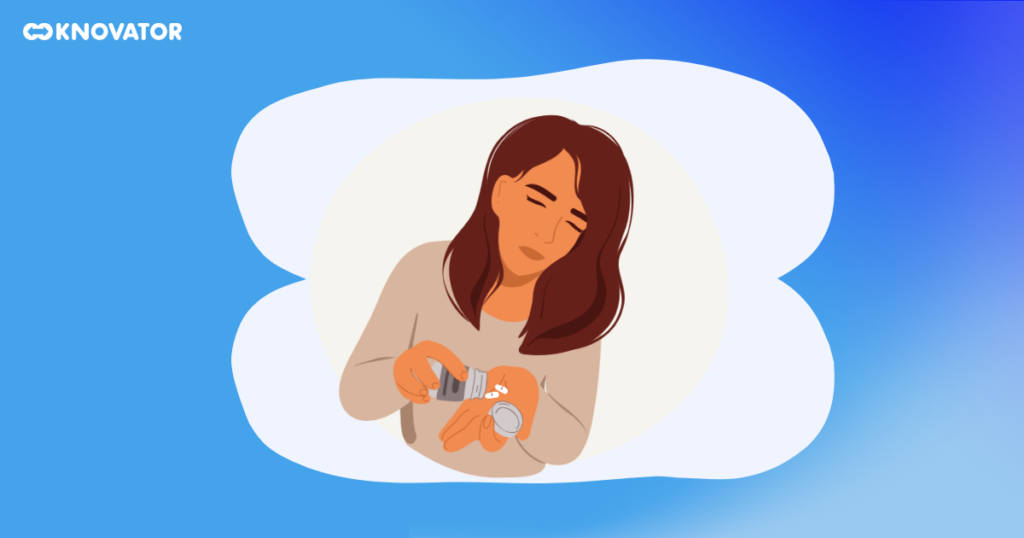 Big data use in healthcare for improving drug prescribing includes:
Big data use in healthcare for improving drug prescribing includes:
- Identify potential drug interactions. This can help to prevent patients from being prescribed drugs that could interact with each other in harmful ways.
- Track the effectiveness of drug treatments. The information provided can help modify treatment plans if necessary.
- Identify patients who are at risk for unfavorable drug reactions. The information provided can help you take necessary preventive measures.
- Monitor the use of prescription drugs in real time. This can help to identify and address patterns of misuse or overuse.
13. Managing mental health conditions
 The benefits of big data in healthcare can also be applied to managing mental health conditions. It can help doctors and healthcare professionals create personalized treatment plans for patients. This includes determining the right medication dosage, predicting potential side effects, and identifying drug interactions.
The benefits of big data in healthcare can also be applied to managing mental health conditions. It can help doctors and healthcare professionals create personalized treatment plans for patients. This includes determining the right medication dosage, predicting potential side effects, and identifying drug interactions.
Further, it can also track patient progress and make necessary adjustments to treatment plans. As a result, this leads to better results and an overall improvement in well-being.
The Future of Big Data in Healthcare
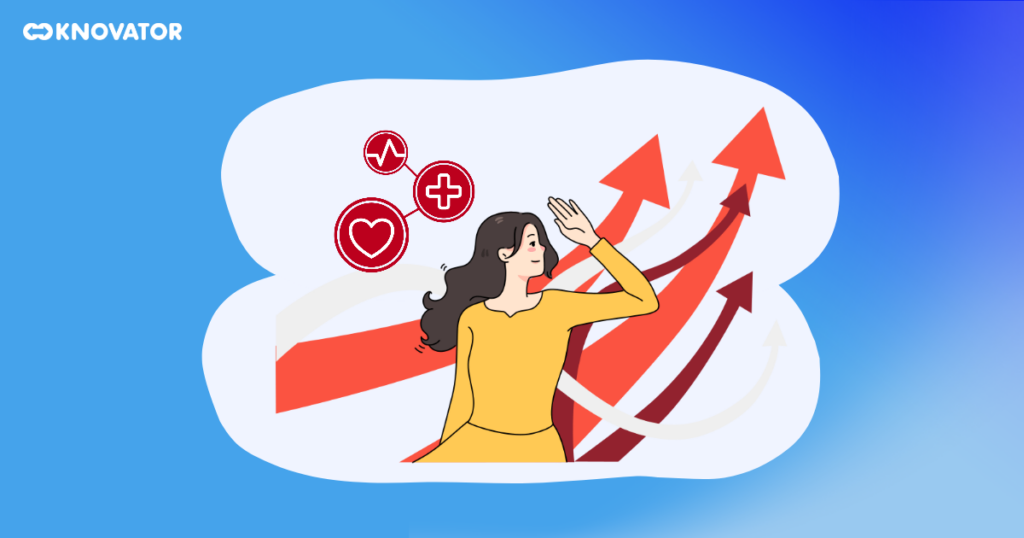 Big data applications in healthcare have revolutionized how we approach medical research, diagnosis, and treatment.
Big data applications in healthcare have revolutionized how we approach medical research, diagnosis, and treatment.
Big data significantly impacts the healthcare industry, with applications in areas such as predictive analytics, real-time patient monitoring, clinical decision support, and public health management.
These applications help improve the quality of care, reduce costs, and make healthcare more efficient. As the volume of healthcare data continues to advance, big data can play an even more significant role in the future of healthcare.

